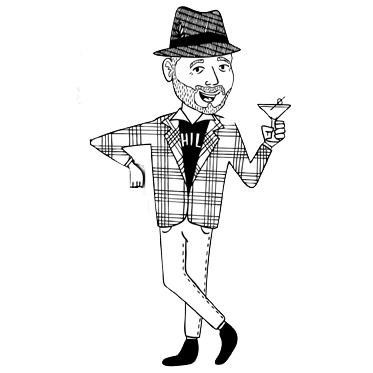 This week I asked the question: “Who was the ‘Butcher of Lyon’, the Nazi who was put on trial in 1987, over 40 years after committing war crimes?” The answer was Klaus Barbie, an evil man who (sadly) the United Stated hired after the war.
This week I asked the question: “Who was the ‘Butcher of Lyon’, the Nazi who was put on trial in 1987, over 40 years after committing war crimes?” The answer was Klaus Barbie, an evil man who (sadly) the United Stated hired after the war.
When the war in Europe ended in the spring of 1945 with the Nazis’ defeat, Barbie hid from the Allies until April 1947, when he was recruited by the Counter Intelligence Corps (CIC) of the U.S. Army in occupied Germany. Although the Army had a warrant for Barbie’s arrest as a suspected subversive, the regional commander decided that his skills as an interrogator made him more valuable as a spy than as a prisoner, and over the next four years Barbie took on increasing responsibility for the Army, at one time running a “net” or spy network that included scores of informants in East and West Germany and France. By all accounts a crafty and skilled interrogator, Barbie soon became one of the Army’s most trusted spies.
When the French government found out that the US was hiding Barbie from them, they were understandably outraged, but instead of handing Barbie over to the French, the US helped him escape to South America.
When French agents were on the trail of Barbie, the CIC contacted Dr. Krunoslav Draganovic, a Croatian priest who ran a “ratline” which helped hundreds of Nazi SS officers escape from Europe. Father Draganovic arranged papers and transportation for Barbie to flee from Germany to Italy and then to Argentina and Bolivia.
Once in Bolivia, Barbie became a drug lord, and carried a considerable amount of political clout. None of what we’ve read so far is disputable. The tie between Barbie and Guevara is certainly dubious, but not entirely implausible. Keep in mind, the CIA killed Guevara in Bolivia, and the Army was certainly in touch with Barbie while he lived in Bolivia at the same time. A 2007 film called My Enemy’s Enemy examined the possible connection.
Alvaro de Castro, a longtime confidant of Barbie interviewed for the film, says: ‘He met Major Shelton, the commander of the unit from the US. Altmann [Barbie] no doubt gave him advice on how to fight this guerrilla war. He used the expertise gained doing this kind of work in World War Two. They made the most of the fact that he had this experience.’
De Castro adds that Barbie had little respect for Che Guevara. ‘Altmann said once, “This poor man wouldn’t have survived at all if he fought in the Second World War. He was a pitiful adventurer, nothing like his popular image. The people have turned him into a myth, a great figure. But what has he actually achieved? Absolutely nothing”.’
Kai Hermann, a journalist, tells the film-makers: ‘He [Barbie] always boasted – though I cannot prove it – that it was he who devised the strategy for murdering Che Guevara.’
Regardless of whether this story is true or not, it is interesting to note that at the same time two awful men responsible for the deaths of thousands of innocents lived in Bolivia: the US employed one and killed the other.

